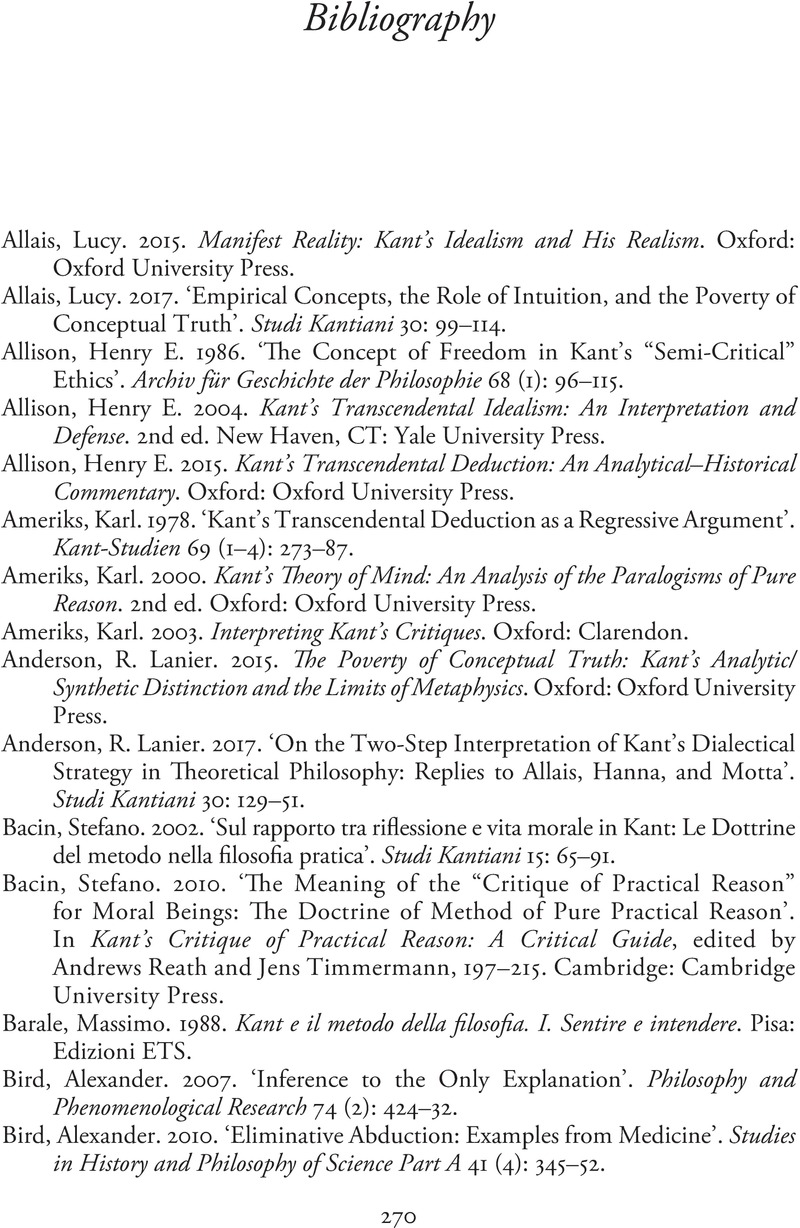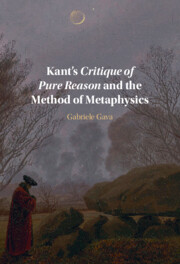Book contents
- Kant’s Critique of Pure Reason and the Method of Metaphysics
- Kant’s Critique of Pure Reason and the Method of Metaphysics
- Copyright page
- Dedication
- Contents
- Acknowledgements
- Citations of Kant’s Works
- Introduction
- Part I Metaphysics as a Science and the Role of the Critique of Pure Reason
- Part II The Method of Transcendental Philosophy
- Part III The Method of the Critique of Pure Reason
- Part IV Kant on Dogmatism and Scepticism
- Bibliography
- Index
- References
Bibliography
Published online by Cambridge University Press: 11 May 2023
- Kant’s Critique of Pure Reason and the Method of Metaphysics
- Kant’s Critique of Pure Reason and the Method of Metaphysics
- Copyright page
- Dedication
- Contents
- Acknowledgements
- Citations of Kant’s Works
- Introduction
- Part I Metaphysics as a Science and the Role of the Critique of Pure Reason
- Part II The Method of Transcendental Philosophy
- Part III The Method of the Critique of Pure Reason
- Part IV Kant on Dogmatism and Scepticism
- Bibliography
- Index
- References
Summary

- Type
- Chapter
- Information
- Kant's Critique of Pure Reason and the Method of Metaphysics , pp. 270 - 281Publisher: Cambridge University PressPrint publication year: 2023



